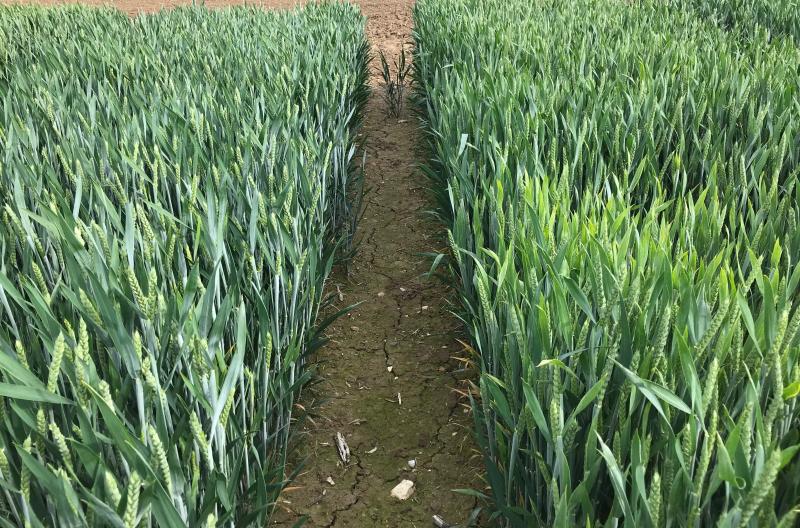
A new winter wheat variety with a high level of resistance to barley yellow dwarf virus (BYDV) is set to launch next year.
The variety, RGT Wolverine, launched by RAGT Seeds, will be available to the UK market next autumn.
It a breakthrough in European variety development and is particularly timely following the withdrawal in 2018 of neonicotinoid seed treatments for wheat.
The ban left growers relying on less effective insecticide sprays to control aphid vectors.
According to experts, barley yellow dwarf virus can cause 60 percent yield loss in wheat.
Latest calculation by AHDB is that if BYDV were not treated, 82 percent of the wheat area would be at risk with a potential loss of £136m per year.
Wolverine is capable of delivering yields even in the absence of BYDV and is backed by a strong agronomic package, so growers will not be penalised for choosing it in low-disease years, says RAGT’s cereal manager, Tom Dummett.
He said: “RAGT is the first breeder in Europe to offer a BYDV-resistant wheat, and the trait is now successfully established in some of our elite material.
“Wolverine has yielded exceptionally well over five years of trials and is capable of competing with the likes of RGT Gravity and Skyscraper, even when there is no BYDV to be seen.”
Wolverine’s resistance originates from a goat grass, Thinopyrum intermedium, a distant wheat relative.
A genetic segment from Thinopyrum containing the resistance gene Bdv2 has been translocated onto a wheat chromosome via an Australian research line known as TC14.
“Difficulties in studying the pathogen hindered the development of a reliable genetic marker to identify the trait in breeding material. However, over the past 20 years, this has changed,” cereal geneticist John Baison said.
Australia’s Commonweath Scientific and Industrial Research Organisation (CSIRO) is one of the very few breeding programmes in the world to have bred and released BYDV-resistant wheats.
Two CSIRO varieties, Manning and Mackellar, have maintained significantly higher yields compared with BYDV-susceptible varieties when BYDV pressure is high.
Farmers will be able to try the variety in autumn 2020 when about 3,500t of seed is expected to be available.
